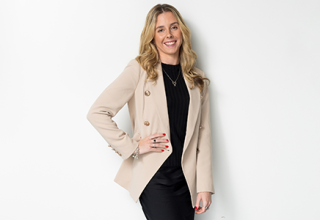High Court upholds contested Will, dismissing claims of undue influence

High Court upholds contested Will, dismissing claims of undue influence
Wednesday 16 October, 2024
Andrew J upheld a contested will in the case of Wilson v Vallely-Te Kani, despite debate about its validity and the testamentary capacity of the will maker.
The decision was in respect of the late Mr George’s will. Mr George’s two sons, Clive and Jeffery sought an order recalling probate of his will executed in 2018, and an order declaring the will invalid. The grounds relied on were that:
(a) Mr George lacked testamentary capacity: and/or
(b) Mr George was subject to undue influence from the defendant, Danielle.
Danielle was Mr George’s granddaughter, welfare guardian and property attorney. She defended the claims made by Clive and Jeffery. Mr George lived with Danielle between the years of 2018 and 2020. In October 2020, Mr George began living with Jeffery.
2018 Will
Under the 2018 will, Jeffery and Danielle were appointed as executors and trustees. Jeffery was to receive all of Mr George’s real and personal property, with the interest passing to Danielle upon Jeffery’s death. Mr George’s Royal Navy Service medals were also bequeathed to Danielle. Clive was excluded from the 2018 will for the reasons recorded.
2020 Will
The decision was predominantly in relation to the 2018 will. However, Mr George had executed a new will on 6 November 2020, just shortly after he had moved in with Jeffery. The 2020 will appointed Clive and Jeffery as executors and trustees and recorded that Mr George’s estate would be shared equally between them. Danielle was not a beneficiary under this will.
Medical evidence showed in 2020 Mr George had been experiencing cognitive impairment. The medical professional suggested that Clive and Jeffery had engineered the circumstances leading to Mr George signing the 2020 will. Considering this, the parties agreed that Mr George did not have testamentary capacity when he signed the 2020 will.
The substantive issue before the Court was therefore to determine the validity of the 2018 will.
Testamentary Capacity
In determining whether Mr George had testamentary capacity at the time of the 2018 will, the Court emphasized that an impact on the will maker’s mind or memory will not automatically suggest they lack testamentary capacity. The ability to make a sound assessment and understand the circumstances to create a fair and rational will is the required standard.
Medical evidence showed that Mr George was within the dementia range. However, there was also evidence that the solicitors took careful steps to determine Mr George’s testamentary capacity when taking instructions. The solicitors obtained a medical practitioner’s certificate which found that Mr George was mentally capable to sign a new will. For these reasons, the Court found that Mr George had the necessary testamentary capacity in 2018.
Undue Influence
The second issue was whether Mr George was subject to undue influence. The Court highlighted that undue influence occurs where a more powerful party exerts influence over a less powerful party to achieve a certain outcome. Undue influence will be found where there has been an impairment of free will.
Clive and Jeffery claimed that Mr George had become fully dependent on Danielle, giving her great control over Mr George, and putting him in a vulnerable position. A relationship of influence was recognised, however, Clive and Jeffery failed to establish that the 2018 will was drafted because of an impairment of Mr George’s free will.
In determining the existence of undue influence, the Court looks to the mind of the person subject to the influence, rather than the actions of other parties. The solicitors established that Mr George had the required mental capacity to make a will and obtained independent legal advice. Independent legal advice was a critical factor in determining the undue influence issue. The claim for undue influence was dismissed.
Void Disposition
The third claim was that the 2018 will was void because Danielle’s husband witnessed it. This claim was dismissed as it was also witnessed by a legal executive and because Mr George had obtained independent legal advice.
Conclusion
Overall, the Court concluded that the 2018 should be upheld because:
- Mr George had testamentary capacity at the time of signing the will;
- There was no undue influence established;
- Mr George knew and approved of his decisions and dispositions voluntarily.
The decision in Wilson v Vallely Te-Kani emphasises the need for proper care processes to be followed in the drafting of wills to avoid later disputes. A will maker must understand the dispositions they are making and the surrounding circumstances for a will to be valid. Obtaining independent legal advice is the best way this can be ensured. For help to do with queries, creating or updating a will, be in contact with the team at Tompkins Wake.








